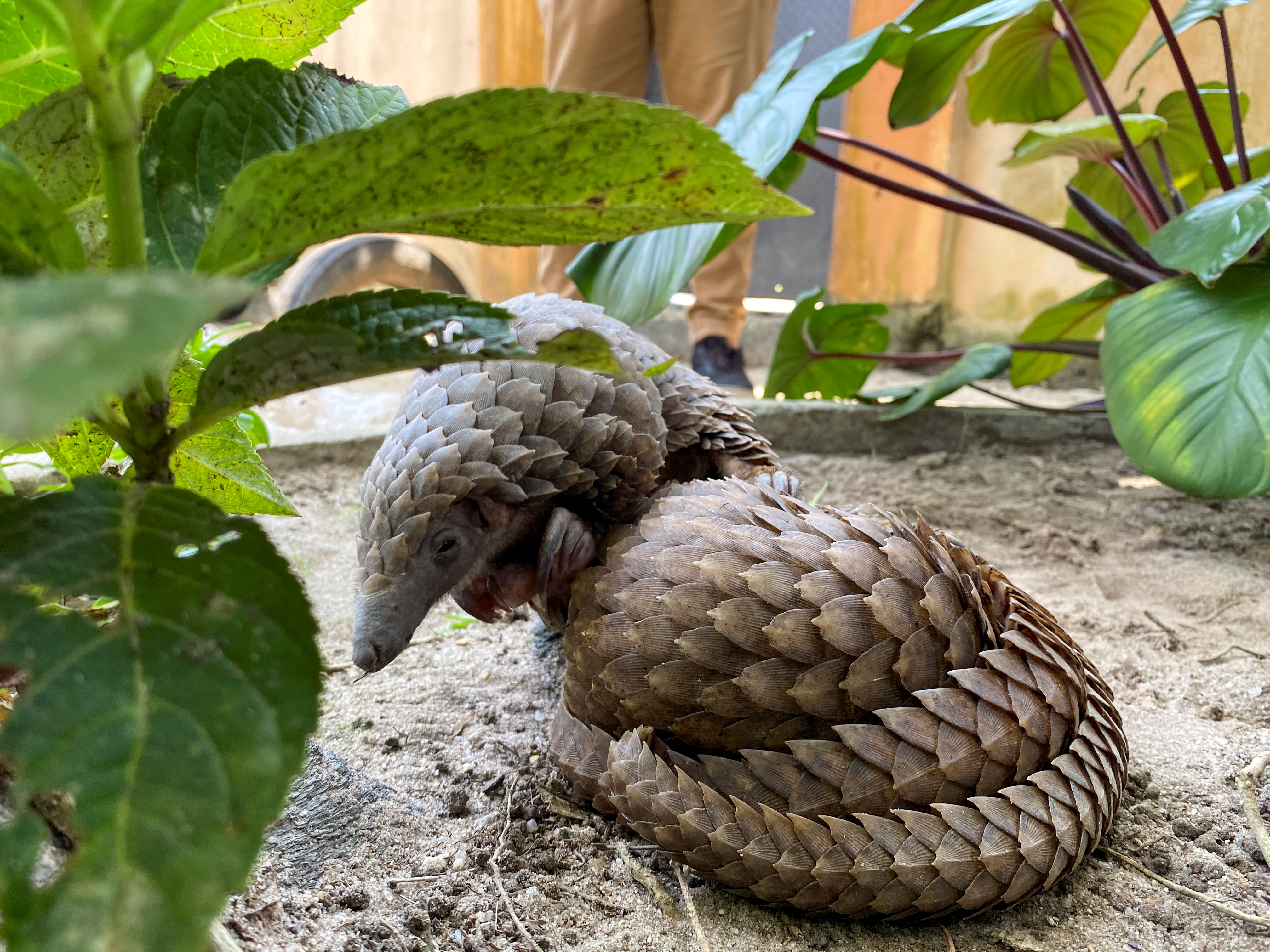
A rescued pangolin bought off a wildlife seller is seen resting at the Green Finger Garden in Lagos, Nigeria July 29, 2020. REUTERS/Seun Sanni Acquire Licensing Rights
SHANGHAI/HONG KONG, Oct 23 (Reuters) – Three listed Chinese drugmakers, whose investors include or use some of the world’s biggest banks, used parts of endangered animals as ingredients in their products, an environmental group said in a report published Monday.
The London-based Environmental Investigation Agency (EIA) urged investors in Beijing Tong Ren Tang group (600085.SS), Tianjin Pharmaceutical group (600329.SS) and Jilin Aodong Pharmaceutical Group (000623.SZ) to divest their stakes.
Beijing Tong Ren Tang and Tianjin Pharmaceutical group did not respond to Reuters’ emails or calls seeking comment. Jilin Aodong Pharmaceutical Group could not be reached for comment.
The three are among 72 firms which non-profit organisation EIA said used body parts of threatened leopards and pangolins as ingredients in at least 88 traditional Chinese medicine (TCM) products.
The group said it focused on the pharmaceutical companies because they are publicly listed and display products that include leopard or pangolin parts on their websites.
TCM manufacturers often publicly tout the efficacy of such ingredients and list them on their product packages.
“It’s particularly disappointing to see so many major banks and financial institutions effectively endorsing this damaging exploitation,” Avinash Basker, a legal and policy specialist for EIA, said in a media release.
“They need to divest from TCM manufacturers using threatened species at the soonest opportunity.”
Beijing Tong Ren Tang and Tianjin Pharmaceutical group did not respond to several emails and calls from Reuters asking for comment. Jilin Aodong Pharmaceutical Group could not be reached for comment.
EIA said 62 financial institutions have invested in at least one of the three firms, and include HSBC Holdings (HSBA.L), UBS (UBSG.S), Deutsche Bank (DBKGn.DE), Citigroup (C.N) and BlackRock (BLK.N).
Some investors, including Wells Fargo & Co (WFC.N) said they had either sold the funds which were invested in the TCM firms or had sold their shares in the companies, EIA said.
HSBC Global Asset Management Canada and Royal Bank of Canada told EIA their investments in the companies were limited to passive or tracker funds.
UBS told EIA its shareholdings were held on behalf of clients.
EIA said Deutsche Bank, HSBC Holdings, Citigroup and BlackRock did not respond to its queries.
Deutsche’s asset management arm DWS has no exposure to the three drugmakers via its actively managed funds, a spokesperson said, noting it’s important to engage with issuers and index providers to achieve ESG improvements and without clarifying the bank’s holding via passive funds.
Citi’s holdings largely involve client-related activity rather than proprietary investment, a source with direct knowledge of the matter told Reuters. Citi declined to comment.
BlackRock declined to comment.
The activist group urged the Chinese government to prohibit the use of parts of endangered animals for all commercial purposes in its domestic markets.
China’s National Medical Products Administration did not respond to a Reuters request for comment.
China’s amended Wildlife Protection law came into effect in May. It bans trade in most wild animals for consumption as food, but permits for breeding and use can still be issued in certain circumstances.
Reporting by Andrew Silver in Shanghai and Selena Li in Hong Kong; editing by Miyoung Kim and Jason Neely
Our Standards: The Thomson Reuters Trust Principles.